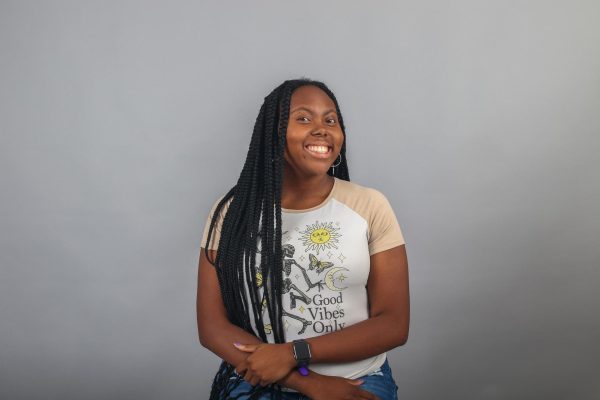Corrections were made to this story on [01/17/2023].
In the article, “restrictive early action” was incorrectly referred to as “early decision.”
The story below has been corrected with the noted revisions.
It’s hard to walk through the hallways without hearing whispers about where my peers are applying to college and predictions about who will get in where. Not a day has passed without students discussing who has been accepted, deferred, or rejected. Not a day has passed where I haven’t wondered about other people’s decision outcomes myself.
With the release of these early application decisions comes a wave of negativity that washes over the senior class. Although some students are encouraging and supportive, sharing congratulatory messages within classrooms and on social media platforms, there are others who minimize their peers’ accomplishments, discrediting the validity of an acceptance because of how peers perceive the student.
Students may have good intentions at first, but jealousy occasionally creeps in. The competitive nature of our school and the college admissions process in general often leads to the comparison of ourselves to other students. However, each of our academic experiences are different.
We don’t know how many extracurriculars students participate in. We don’t know which topics students wrote about for supplemental essays. Each application is a profile, compiled of a student’s academic and personal experiences. The admissions committees are the ones examining that content, so it’s not our place to pass judgment about where certain people should or should not have gotten into. There are factors that admissions officers discuss that we may not know about. As students, our perceptions of the college admissions process are limited.
The National Association for College Admission Counseling reported that 18.9% of colleges attribute a “considerable importance” to essays with 6.5% attributing this to extracurricular activities and another 10.8% to teacher recommendation letters — all parts of a college application that none of us are wholly privy to.
No matter what a college decides, we need to realize that, as students, we do not have a say in who deserves an admittance and who does not. However, we do have a say in how we react.
Among the excitement of our school’s students getting accepted to top schools like Harvard and MIT, it’s disappointing to hear demeaning statements like “But their class rank isn’t even that high” and “They aren’t actually smart, though.” Before this year, I had only been on the outskirts of the college application process. My upperclassmen friends would mutter about submitting the Common Application and asking teachers for letters of recommendation. But now, I’m seeing firsthand how complex the process can be and how competitive it has made the senior class. Part of this stems from the increase in applicants overall. The Common Application reported that the amount of applications rose 30% from the 2019-2020 cycle to the 2022-2023 cycle. As more and more students apply — those who all take the same classes and are all presidents of the same clubs or volunteer with the same nonprofit chapters — the process becomes more arbitrary. Nobody’s admission is guaranteed. Yale University reported via The Yale Daily News that their 9.02% restrictive early action (REA) acceptance rate is the lowest it’s been in two decades. The Chronicle reported that Duke University received 1,000 more early decision (ED) applicants than any previous application round, which resulted in the ED acceptance rate dropping to 12.9% this cycle. Other universities released their early action (EA) and ED application results on Dec. 14, leaving seniors across the country (and across our campus) with thrilling or disappointing news. With these lowered acceptance rates, it makes it near impossible for any student to accurately predict the outcomes. I know it hurts to get rejected from schools that your heart was set on, and sometimes that pain drives a desire to spread negativity to others. Don’t let that pain overshadow all the joy that comes with getting accepted into a college. Think about the delight you’ll experience once you open up your own acceptance email. It’s so easy to remember that joy when we succeed, and when someone else is accepted, we should keep that same energy. Part of the problem with support is the all-too-common inability to maintain empathy no matter the outcome. When someone gets accepted, we must put our pride aside. Bulldozing over someone’s excitement with shade and negativity shouldn’t be normalized. In the instance where our peers get a result that they didn’t want, recognize that everyone deals with disappointment differently. It’s possible that they’ll interpret your expressions of sympathy differently from the way that you intended. Just as you’d wish for someone to empathize with you in the case of rejection, you should support others by omitting negativity and encouraging positive outlooks on the future. At the end of the day, whether we’re opening up an acceptance, deferral, or rejection, we’ll end up where we’re meant to be. Sure, it sounds corny, but we have to admit that it’s true. If you stay focused on what you once wanted but didn’t get, you’ll simply despise the next four years of your life. It might not look like the college campus you’re imagining in your head. It might not look like the school you’d expect your peers to end up attending. But it’s the admissions office’s decision, not yours, and there’s no way of knowing where you’ll end up until you get there. No matter what admissions officers decide, we have no control over it. However, we can control how we discuss this complex process and how we support our classmates through it.















